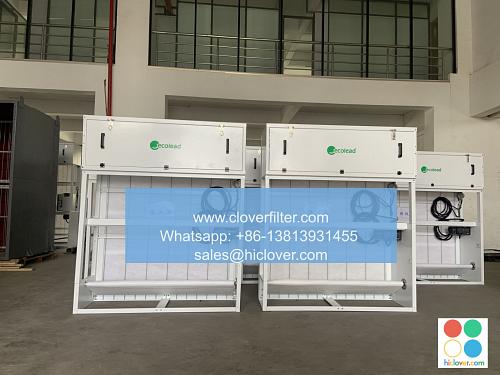Air Filter Glossary

Air filters are a crucial component in maintaining indoor air quality, and with the numerous types and technologies available, it’s essential to understand the terminology used in the industry. In this article, we will delve into the world of air filters, exploring the key terms, technologies, and applications that shape the market.
Introduction to Air Filters
Air filters are devices designed to remove pollutants, allergens, and other airborne particles from the air, improving the overall indoor air quality. They are used in various applications, including HEPA filtration systems, activated carbon filtration, and UV air purification systems. Understanding the different types of air filters and their applications is vital for selecting the right filter for your specific needs.
Air Filter Types and Technologies
There are several types of air filters, each with its unique characteristics and applications. Some of the most common types include:
* HEPA (High Efficiency Particulate Air) filters: Designed to capture 99.97% of particles as small as 0.3 microns, including dust, pollen, and other allergens.
* Activated carbon filters: Used to remove gases, odors, and chemicals from the air, often in combination with HEPA filters.
* Electrostatic filters: Utilize an electrostatic charge to attract and trap particles, making them a popular choice for residential and commercial applications.
* UV air purification systems: Employ ultraviolet light to kill bacteria, viruses, and other microorganisms, providing an additional layer of protection against airborne pathogens.
Air Filter Applications and Industries
Air filters are used in a wide range of applications and industries, including:
* Residential air filtration systems: Designed to improve indoor air quality in homes and apartments, reducing the risk of allergies and respiratory problems.
* Commercial air filtration systems: Used in offices, schools, and other commercial buildings to maintain a healthy and productive environment.
* Industrial air filtration systems: Employed in manufacturing facilities, warehouses, and other industrial settings to remove pollutants and contaminants from the air.
* Healthcare air filtration systems: Critical in hospitals, clinics, and other healthcare facilities to prevent the spread of airborne infections and maintain a sterile environment.
* Automotive air filtration systems: Used in vehicles to improve cabin air quality and reduce the risk of allergies and respiratory problems while driving.
Air Filter Maintenance and Replacement
Regular maintenance and replacement of air filters are essential to ensure their effectiveness and prolong their lifespan. Some key terms to understand include:
* Filter efficiency: The ability of an air filter to capture particles and pollutants, usually measured in terms of MERV (Minimum Efficiency Reporting Value) or HEPA ratings.
* Filter pressure drop: The loss of airflow pressure across the filter, which can impact the overall system performance and energy efficiency.
* Filter replacement interval: The recommended time frame for replacing air filters, which varies depending on the type of filter, usage, and environmental conditions.
Conclusion
In conclusion, understanding the air filter glossary is essential for navigating the complex world of indoor air quality. By familiarizing yourself with the key terms, technologies, and applications, you can make informed decisions when selecting air filters for your specific needs. Whether you’re looking to improve the air quality in your home, office, or industrial facility, there’s an air filter solution available to meet your requirements. Remember to always consider factors like filter efficiency, pressure drop, and replacement interval to ensure the optimal performance and longevity of your air filter system. You haven’t asked a question or provided any context for me to respond to. What would you like to talk about or ask? I’ll do my best to help.

